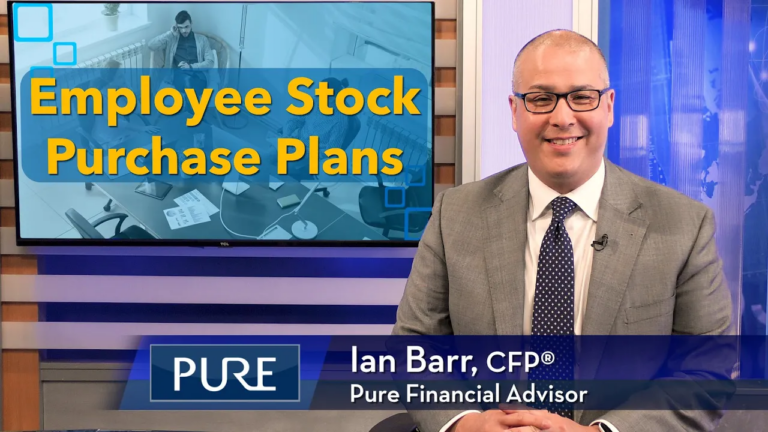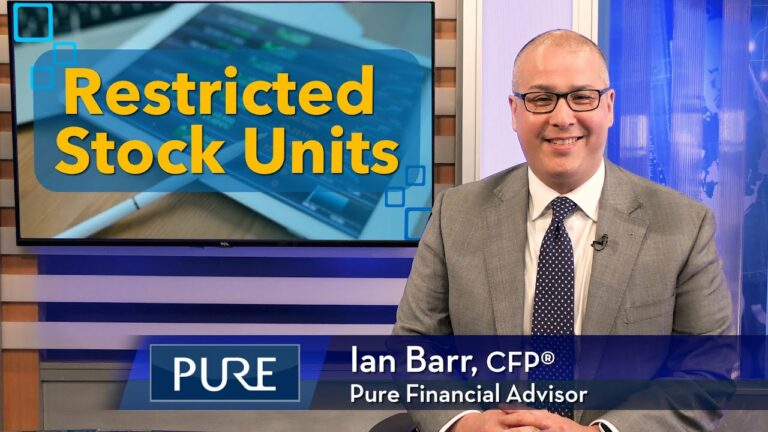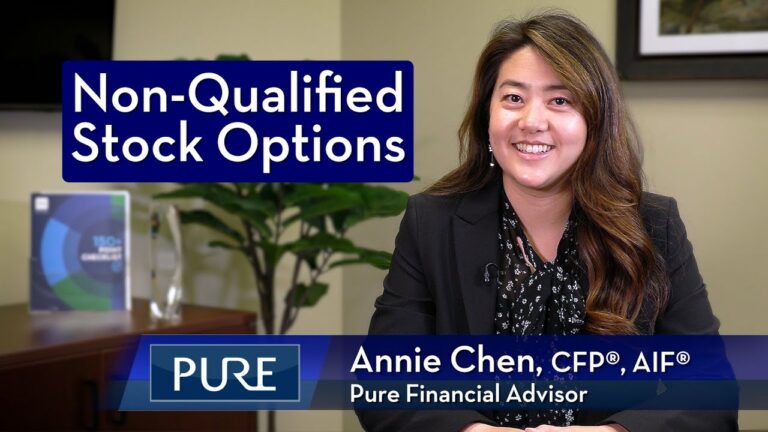You spent your life preparing and saving for your retirement, do you have a retirement vision to enjoy it? It’s best to detail out what your day-to-day will look like and have a retirement lifestyle plan that can go along with your financial plan. Pure’s Financial Planner, Joe Sanchez, CFP®, AIF®, helps you prepare for a life of leisure.
FREE GUIDE | Retirement Lifestyles Guide
Transcript
In our role as advisors we see so many folks who are preparing for retirement, and their questions are generally along the same lines:
When can I retire? How much money will I need? Can I be more efficient with my strategy?
Those are just a few. But many don’t stop down to consider what their retirement vision is, and that can be equally important. Failing to plan for what to do with that flexibility & free-time is likely to leave you unfulfilled. Now that every day is a Saturday you want to make sure you are prepared for that.
Some top activities for retirees include: travel, spending time with family and friends, taking up a hobby, gardening, fishing, golf, volunteering, reading, exercise, and home renovations. Although all of the retirement activities that come to mind sound really engaging, unfortunately, the most common leisure activity for retirees is watching TV; which beats socializing, reading, exercise, and playing games combined. It’s an easy trap to fall into if you don’t have a plan to create fulfilling activities, so it’s best to detail-out what your day-to-day will look like and have a retirement lifestyle plan that can go along with your financial plan.
Write it out – you’re 42% more likely to achieve it if you write down. Otherwise, you could end up like those people in the survey who spend the majority of their time watching TV.
A few ideas on things you could include: you could get a part-time job. Maybe you truly loved the career you had and can continue consulting part-time, or even find a part-time position related to a hobby. If you enjoy the outdoors you could be a park ranger, or if you love literature, you could find work as a librarian. A side benefit is that this can help fund some extra travel, home improvements, new car purchases, or anything else that you hadn’t previously included in your retirement budget.
Another activity option would be to volunteer. Retirement is the perfect time to get involved in a local organization and give back. Whether it’s an animal shelter, hospital, musical non-profit, or your grandkids’ sports team, now is the time. You can find something that you love and help others at the same time.
Keeping physically active is also incredibly important. A few options there could be a brisk walk with friends, tennis, water aerobics, or a dancing class. In 2017, people age 55 and older spent an average of 15 minutes a day doing physical exercise. Well under the minimum recommendation of 20-40 minutes by the Office of Disease Prevention.
In terms of your of health, take care of your mind too. Spend some time on your emotional energy, that’s how you think and feel, your mental energy, keeping your mind sharp, and your purpose, keep up some motivation. To help keep your mind sharp, you can try crosswords, brain game apps, and reading. You can also check your local community centers, colleges, and libraries that have adult continued education courses, philosophy courses, book clubs, some “how to” courses like knitting, guitar, painting, or cooking.
For many of our clients, one of the most rewarding aspects of retirement is being able to travel, so take that Alaskan cruise, drive a convertible up the coast (as one of my clients is planning), or take a train trip around the US. You worked hard for your retirement nest egg, but don’t be afraid to spend it. If you’re concerned that you don’t have enough saved to travel, meet with your financial advisor and they can assist you with a retirement travel budget. Of course, to have a successful retirement lifestyle plan you need to have a firm grasp on your finances as well, as many of these activities have some cost. You will also likely have a laundry list of items that have been put off, but now you can finally take care of them too, so want to have a budget for those as well.
The way to start is to determine a desired spending level so figure out how much is covered by any fixed income sources that you may have, and then determine if the shortfall can be maintained from your savings. Make sure you don’t leave out taxes, inflation, and random unplanned expenses. You need to make sure you have some flexibility. A rule of thumb is not to plan to distribute more than 4% of your portfolio each year, but that should be adjusted based on some personal factors as well.
A couple of final tips for your retirement lifestyle plan. Have a reason to get up every day, make your health a priority, keep your brain sharp, and learn something new. But whatever you do, have fun because you have spent your life preparing and saving for your retirement, now it’s time to enjoy it!
Subscribe to our YouTube channel.
IMPORTANT DISCLOSURES:
• Investment Advisory and Financial Planning Services are offered through Pure Financial Advisors, LLC, a Registered Investment Advisor.
• Pure Financial Advisors LLC does not offer tax or legal advice. Consult with your tax advisor or attorney regarding specific situations.
• Opinions expressed are subject to change without notice and are not intended as investment advice or to predict future performance.
• Investing involves risk including the potential loss of principal. No investment strategy can guarantee a profit or protect against loss in periods of declining values.
• All information is believed to be from reliable sources; however, we make no representation as to its completeness or accuracy.
• Intended for educational purposes only and are not intended as individualized advice or a guarantee that you will achieve a desired result. Before implementing any strategies discussed you should consult your tax and financial advisors.
CFP® – The CERTIFIED FINANCIAL PLANNER™ certification is by the Certified Financial Planner Board of Standards, Inc. To attain the right to use the CFP® designation, an individual must satisfactorily fulfill education, experience and ethics requirements as well as pass a comprehensive exam. Thirty hours of continuing education is required every two years to maintain the designation.
AIF® – Accredited Investment Fiduciary designation is administered by the Center for Fiduciary Studies fi360. To receive the AIF Designation, an individual must meet prerequisite criteria, complete a training program, and pass a comprehensive examination. Six hours of continuing education is required annually to maintain the designation.












